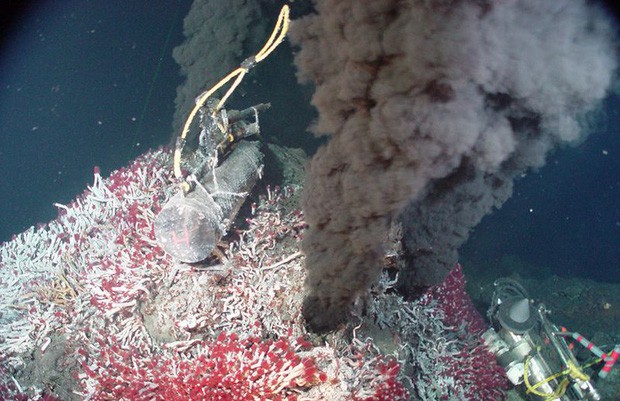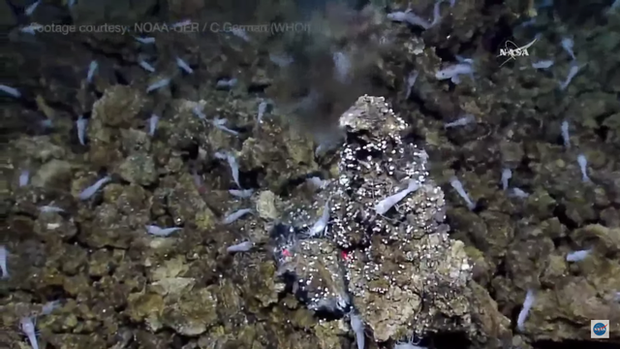Alien life may not be far away, but located directly in the solar system, with the most prominent candidate being Enceladus – Saturn’s moon.
Man’s plan to find alien life has never ceased. Especially since in recent years science has concluded that extraterrestrial life may even exist in the solar system.
Water on Mars, oceans on Europe (Jupiter’s moon), and hydrothermal reactions on Enceladus (Saturn’s moon) – are important discoveries, placing all three on the list of potential members capable of sustaining the life in the solar system.
And now, as everyone turns to Mars, scientists at the University of Vienna (Vienna, Austria) believe Enceladus is the best candidate. Indeed, according to a new study, they have confirmed that microorganisms on Earth can indeed survive in conditions similar to those of the underground oceans of this satellite.
For the uninitiated, Enceladus is Saturn’s 6th largest moon. The surface of Enceladus is a frozen world, but below is a huge ocean. At both poles of the satellite, there are strange cracks, spewing out liquid matter.
In 2017, NASA confirmed hydrothermal and chemical reactions in these oceans. The reactions produce methane, hydrogen, and carbon dioxide – chemicals commonly found in a habitable place like Earth. All of them have led science to hypothesize: could methane-producing microorganisms on Earth also survive here?
To verify, the team of experts from the University of Vienna attempted to grow three types of microorganisms in the laboratory. 2 of which are separated from hydrothermal vents on Earth. The other is from a waste treatment plant, which is not designed to survive in extreme environments. And all 3 are samples that absorb CO2 and hydrogen and then emit methane.
Then the bacterial samples will be subjected to a number of extreme conditions – including temperature, pressure, harsh chemicals … just like what they would be subjected to on Enceladus.
As a result, at least one type of bacteria can still survive and multiply, even though the environment contains extremely toxic chemicals thought to be abundant on Enceladus like formaldehyde or ammonia. This proves that there will be microorganisms that can exist on this satellite.
“Previous studies have shown that many types of bacteria can survive in harsh environments. Our results suggest that certain life forms are also likely to survive on Enceladus.” – Simon Rittmann, principal investigator of the study said.
However, Rittmann said the study’s results are not absolute. “We have only confirmed that certain forms of life on Earth can live under conditions like Enceladus, but we cannot conclude that there is life there.” – he said frankly.




